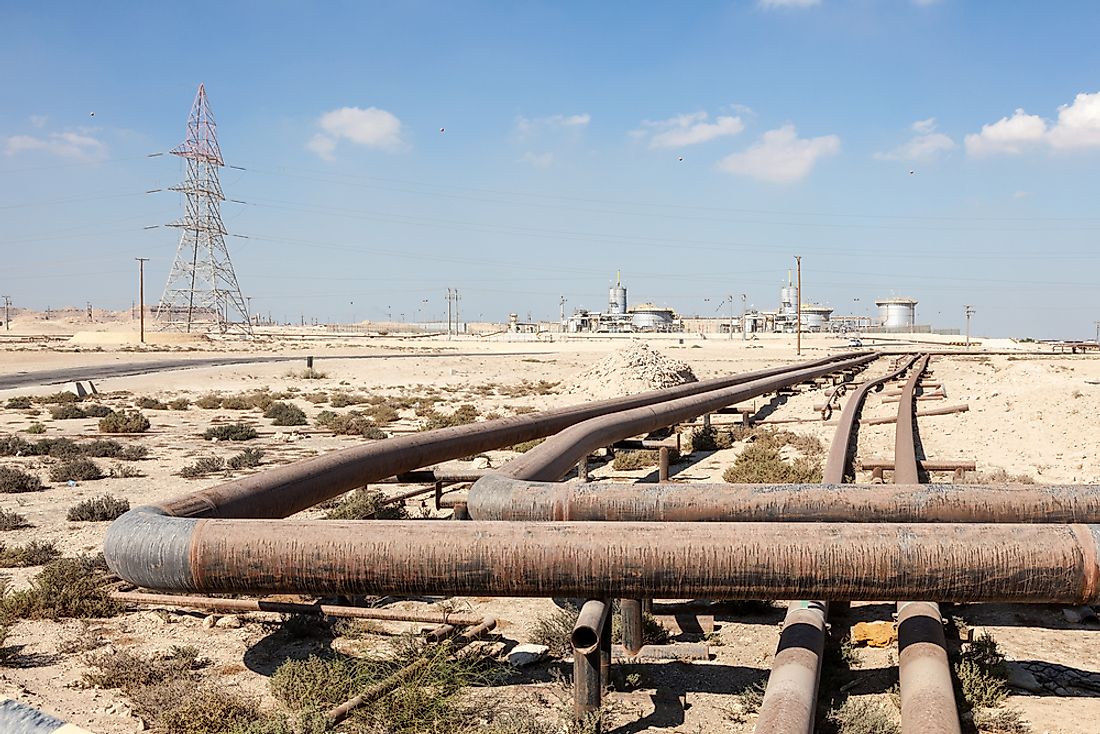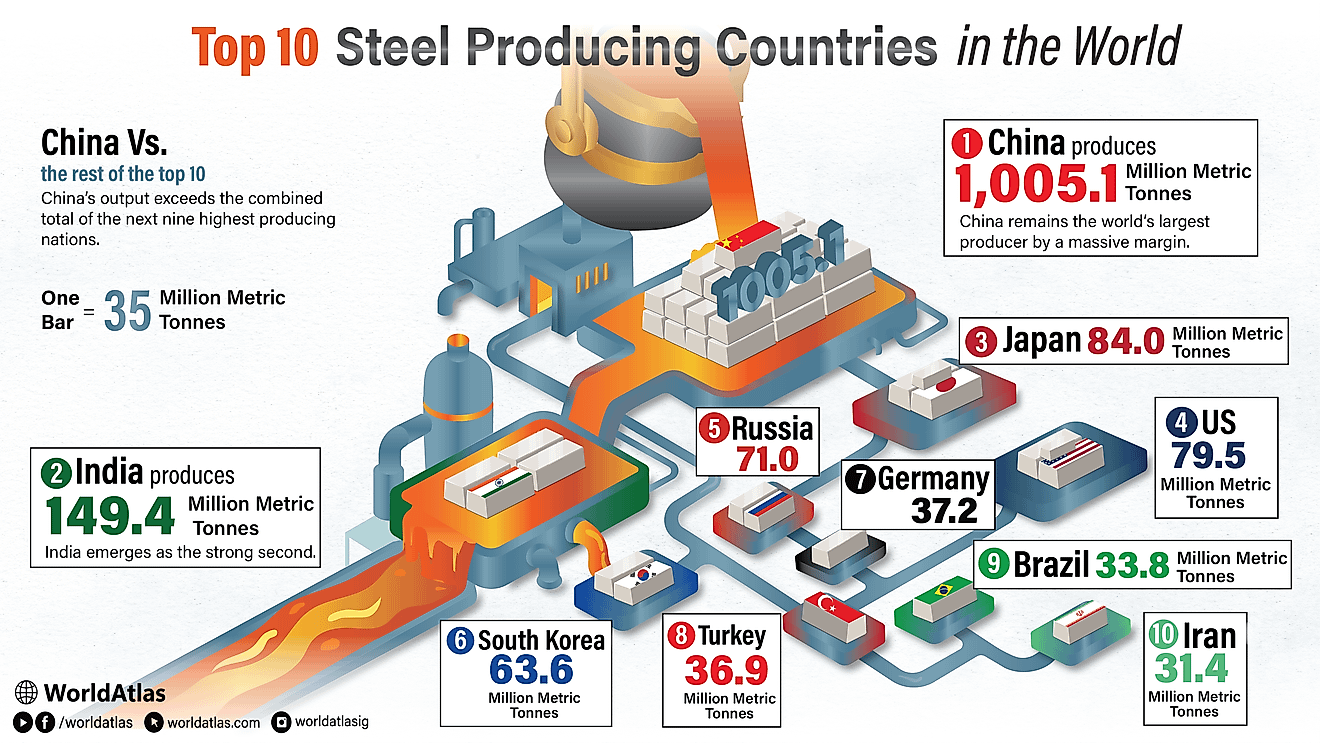What Are The Major Natural Resources Of Bahrain?

Bahrain is one of the smallest nations in Asia. It covers an area of roughly 300 square miles. Despite its relatively small size, the Bahraini economy is one of the strongest in the world.
Bahrain's economy is driven by sectors that make great use of the country's limited natural resources. Due to its extended history, Bahrain has one of the most ancient economies in the Middle East. In the past, the economy was heavily reliant on trade, but in the present day, the economy is focused on the production of fossil fuels. Fossil fuels, particularly oil and natural gas, are the most critical natural resources in Bahrain. Apart from fossil fuels, Bahrain also relies on other natural resources such as arable land and minerals such as aluminum.
Arable Land
Historically, arable land was one of the most critical natural resources in Bahrain. During the colonial period, close to 25 square miles of Bahraini territory were dedicated to agriculture. After the nation gained its independence, the area devoted to agriculture reduced significantly to roughly 6 square miles. The Bahraini Royal Family owns most of the productive agricultural land in the country. Estimates from the Bahraini labor department indicated that in 2004 roughly 1% of the Bahraini labor force worked in the agricultural sector.
Before oil was discovered in the country, the most important crop was dates. The country produced sufficient dates to satisfy the local demand, and the surplus was sold to other nations. According to the country's agricultural experts, more than 20 types of dates thrive in Bahrain's climate. Apart from the fruit of the date trees, the other parts of the tree such as the flowers, the buds, and the leaves were also used. Date farming experienced a significant decline in the mid-20th centuries due to several reasons. The most notable factor was the change in the Bahraini dietary patterns. Another factor that led to the decline in date production in the country was the reduction of water available to irrigate the dates.
Livestock
Livestock is one of Bahrain's most important natural resources. Bahraini livestock farmers keep a variety of animals such as cattle, camels, sheep, and goats. Because Bahrain is a Muslim country, livestock farmers do not keep pigs. Despite the presence of the livestock industry in the country, Bahrain has to rely on imports from other countries to satisfy the local demand. The Bahraini government has put in place some measures to increase the number of animals within its borders such as the introduction of artificial insemination. The Bahraini government partnered with the UN to introduce the artificial insemination program.
Fish
Because Bahrain is an island nation it has a wealth of fishing resources. Fish constitutes a vital part of the diet of most Bahraini people. According to several experts, Bahrain's territorial waters are home to more than 200 kinds of fish. Before the Bahraini oil boom, fishing was an essential economic activity for most of the country's young men. Apart from fishing Bahraini young men were also involved in pearling. In the past, pearls from Bahrain were famous all around the world due to their high quality. Bahrain's pearl industry declined due to two main reasons; the oil industry attracted most of the young Bahraini men and stiff competition from the Japanese pearl industry. Historical data indicated that in the 1970s, there were less than 1,000 Bahraini fishers in the country's territorial waters. Despite the decrease in the number of fishers, the demand for fish in the country increased significantly. Due to the increased demand for fish in Bahrain, the government put in place several measures to revitalize the sector such as giving fishers training and providing them with storage facilities to keep their fish.
Oil and Gas
Unlike most nations in the Persian Gulf, Bahrain does not have vast quantities of oil resources. Bahrain's oil reserves are among the least in the region as its oil reserves are approximately 124 million barrels of oil. Bahrain was the first nation in the Persian Gulf, on the Arabian side, where an oil well was set up. The Bahrain Petroleum Company set up the well and was also responsible for managing it, and the first time the oil was in the well was in 1932 and it initially produced 9,600 barrels each day. During subsequent years, the production increased significantly, and during the 1970s it gave out roughly 70,000 barrels each day. In the 1980s the oil well produced approximately 35,000 barrels each day.
In the modern era, the Bahraini government shoulders most of the responsibility for developing the country's oil and gas sector. According to estimates from the Bahraini government, the oil and gas sector contributes roughly 86% of the country's total revenue. Currently, the most important oil field in Bahrain is the Abu Safa field which is located within the country's territorial waters and generates roughly 300,000 barrels of oil each day. A foreign company, the Saudi Aramco presently owns the field, but the Bahraini government takes 50% of the revenue that the field generates. The other major oil field in Bahrain is the Awali oil field. The Awali field achieved peak production in June 2015 when it produced 56,000 barrels of oil each day. In 2018, according to a report from the Bahraini government, the nation discovered a deposit having significantly large deposits of gas and oil. The report indicated that the field could contain at least 10 trillion cubic feet of natural gas as well as 80 billion barrels of oil. The discovery was the largest in Bahrain's history.











